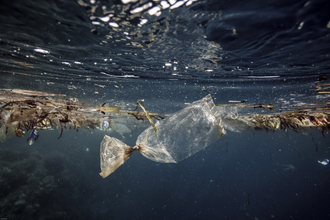The balance of our seas is tipping out of control...
The North Sea was abundant, clean and healthy. It was home to bluefin tuna bigger than a grown man, with oysters stretching right across the mouth of the Humber and hundreds of hectares of seagrass swaying gently in the current.
The presence of tuna demonstrated the health of our seas, the oysters cleaned our waters keeping it healthy for wildlife and clean for people, and the meadows of seagrass trapped carbon underneath the waves.
But global sea temperatures are rising rapidly, and the effects of the climate crisis are felt acutely in our marine ecosystems.
The delicate balance of the sea’s chemistry is being tipped into unfavourable conditions and the climate crisis means recovery will be a struggle without intervention. We are losing our marine wildlife faster than we can record the declines.
Unless we take urgent action we could lose these magical species forever.

We can combat the climate emergency.
What's the damage?

Destruction of carbon-capturing habitats
Our seas absorb around 30% of the C02 released into the atmosphere. Studies show that seagrass, recorded in the Humber Estuary since 1888, is more effective than forests for storing carbon. Seagrass meadows also prevent erosion and provide essential habitat and feeding grounds for wildlife.
But bait digging, pollution and disturbance from ships have contributed to the erosion of our seagrass - just a few small fragments remain. Globally in decline, it's estimated that there has been a 49% reduction in seagrass meadows worldwide.
With our underwater meadows disappearing, we are losing a vital, natural solution to the climate crisis.
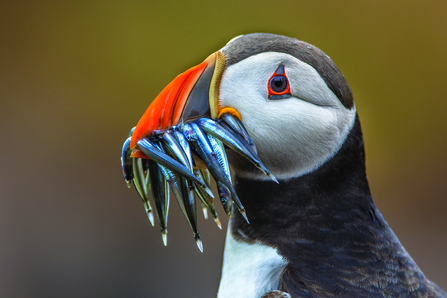
Changing behaviours
Warming sea temperatures are posing a huge threat to the health of our seas. Although sea temperatures naturally fluctuate, human activity is heating our seas at a rate never seen before. This forces marine wildlife to radically change their behaviour to survive and could lead to the total collapse and extinction of many of our amazing marine species.
One example is sand eels - the main food sources for puffins. They are having to travel further north to find colder waters. Puffins in turn have to travel further and further to find food, leaving the nest and their vulnerable chicks alone,
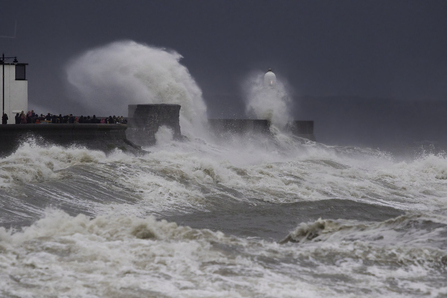
Stormy and acidic seas
As our seas absorb more carbon, they are gradually becoming more acidic. This has devastating consequences for our marine wildlife, as it weakens the shells of oysters and the fabric of vital marine habitats, making them less able to tolerate changes in water pollution levels.
What's more, our weakened marine habitats and shores are becoming increasingly vulnerable to erosion as extreme weather becomes more frequent. This means that spawning fish have fewer places to breed, juvenile fish have fewer places to hide from predators and shelter from powerful currents, and wading birds have fewer feeding grounds.
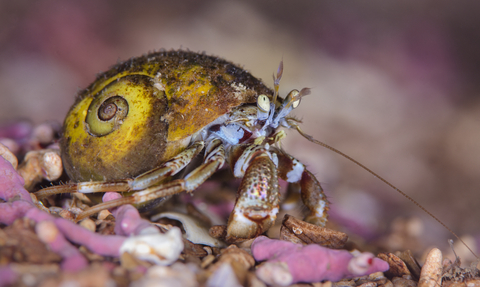
With your support, we can begin to restore the balance of our seas

At the forefront of innovation
Our expert marine biologists are at the forefront of new techniques and innovative methods to replant our seagrass meadows.
Working right on Yorkshire’s edge at Spurn National Nature Reserve, our marine team have surveyed, experimented and undertaken trials to discover the optimal conditions for gathering, germinating and replanting seagrass seeds.
Thanks to their efforts, we are now ready to plant thousands of seeds this year at Spurn, covering around four acres. We estimate they will store an incredible 1.7 tonnes of carbon every year - and this is just the very beginning. The trials and research will be used to inform seagrass meadow replanting projects across the country, and significantly raise the profile of Blue Carbon Capture as one of the most crucial wild tools in fighting the climate crisis.
Seagrass will begin to creep back up the shoreline at Spurn. One day very soon, those meadows beneath the waves will no longer be just a distant memory.
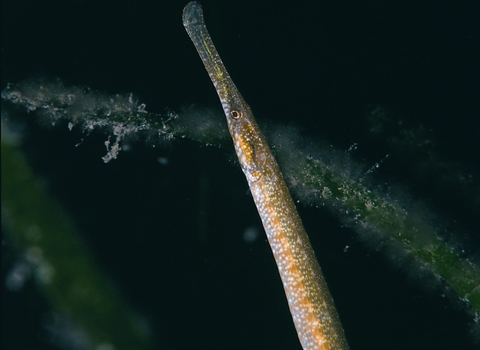
Deep-snouted pipefish in seagrass
Colourful and abundant once again
Restoring our seagrass meadows will help to restore our seas to their former glory - healthy, colourful and full of life.
There will be plentiful feeding grounds for migrating and local birds, the seabed will be healthier for our native oysters enabling them to thrive and clean our waters again, juvenile fish will have a better chance of reaching maturity, and the potential for carbon capture is almost unimaginable.
Our comprehensive research-based trials are showing the true scale of the restoration possible - a seascape which will truly help us in the fight against the climate emergency.
Spurn Point is a place like no other.
It is uniquely positioned on the Humber estuary, one of the most important shipping channels in Britain, and yet it is incredibly remote and nationally important to wildlife. It’s the perfect place to trial and learn even more about seagrass restoration and the multiple benefits these underwater meadows can bring about for wildlife and people.

Donate £41
£41 could help a child have their first experience of the seashore through a rock-pooling activityDonate £73
£73 could buy the trestles needed to reintroduce native oysters into our seas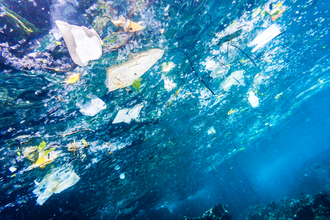
Donate £122
£122 could allow us to deliver a stakeholder & community workshop to increase understanding about marine pollutionOysters - our ecosystem engineers
Oysters form vast reefs which provide an essential cleaning service that keeps the surrounding sea healthy and clear. Amazingly, a single oyster can filter and clean up to 200 litres a day - that’s as much as a million litres of water throughout its entire life!
Oysters also help to combat the climate emergency. By filtering our seas and keeping them clear, they allow more sunlight to reach deeper, encouraging plants like seagrass to grow.
Alongside our innovative work to restore seagrass, we're also reintroducing oysters to the Humber for the first time in 50 years. We dream of a day where oysters and seagrass are abundant in Yorkshire, and our seas are clean and healthy once more.
We already have the solutions at our fingertips!
And finally...
Can you Give Seas a Chance by sharing our campaign on social media?
Thank you for your support!




